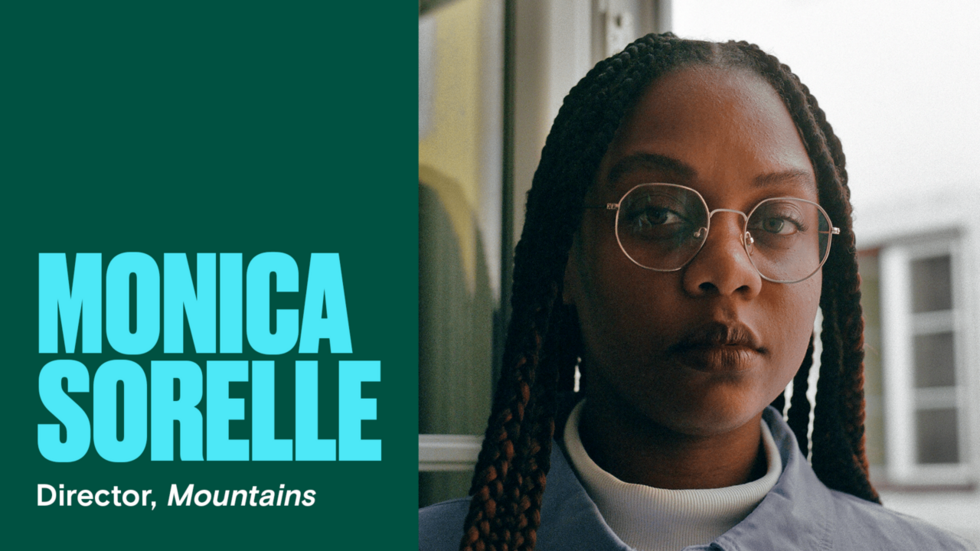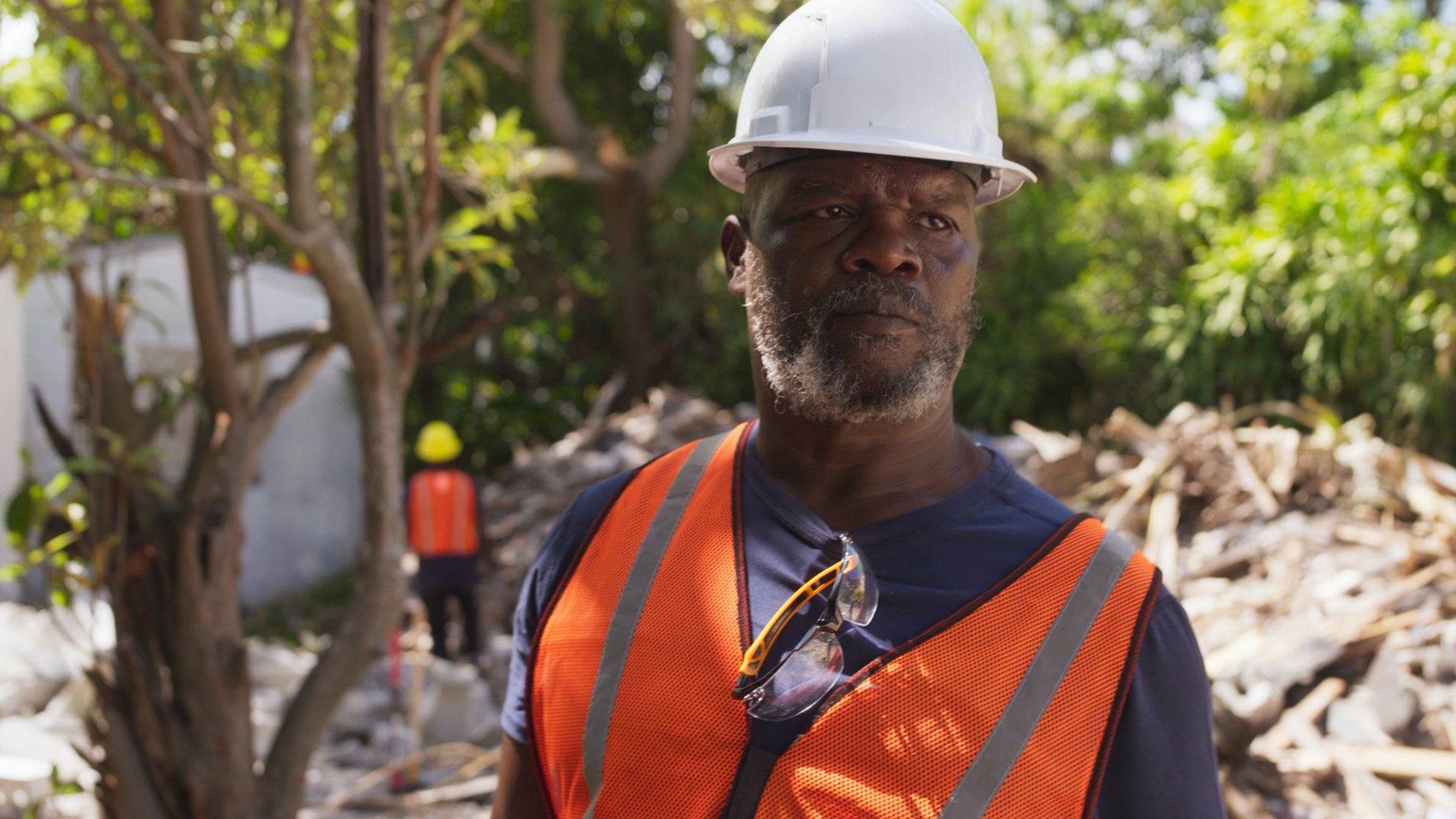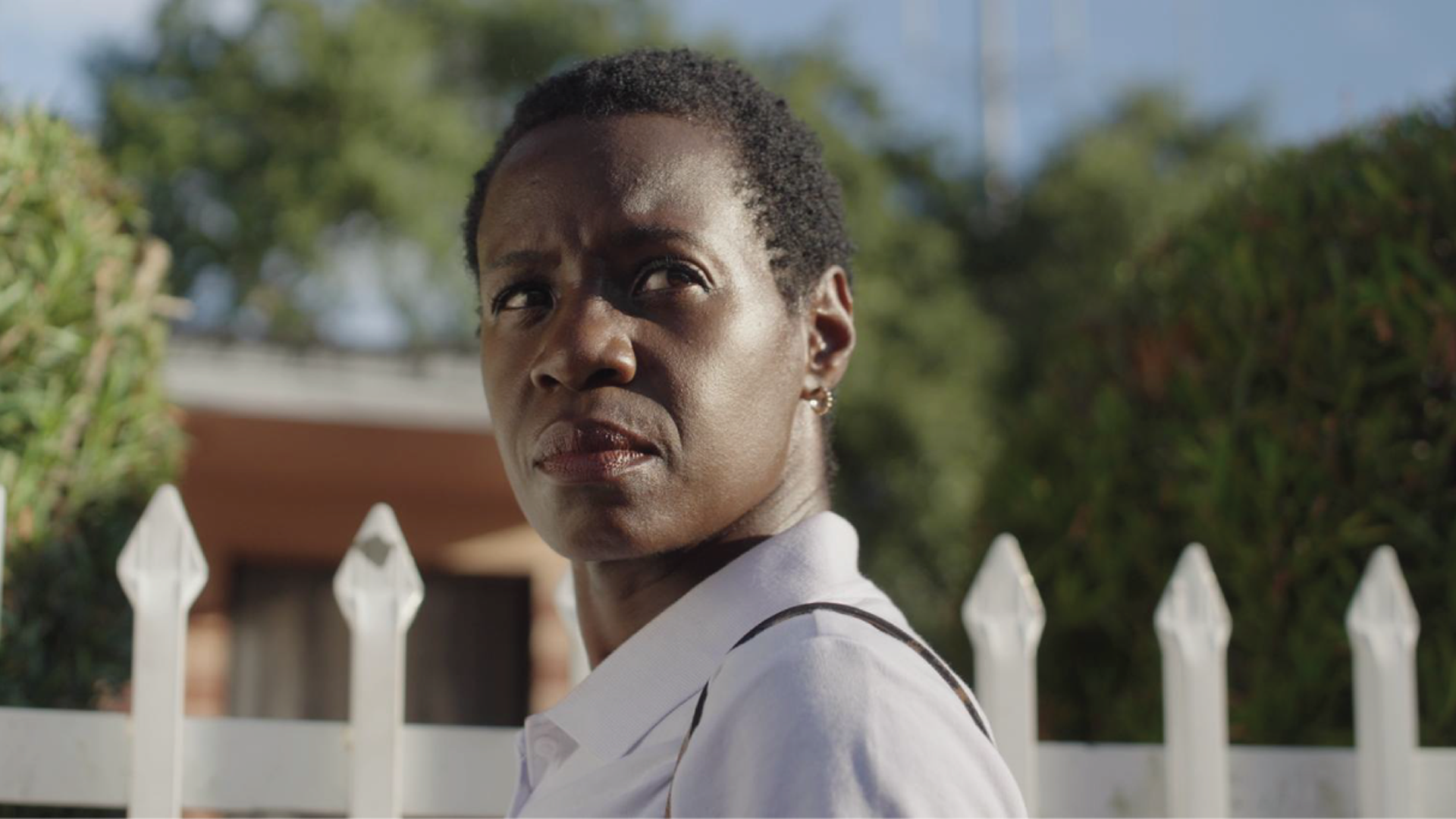
BY VINAY UMAPATHY |
MONICA SORELLE ON TF23 U.S. NARRATIVE SELECTION 'MOUNTAINS', MIAMI'S GENTRIFICATION, & FIGHTING FOR THE SLICE OF THE AMERICAN PIE

Step into the vibrant world of Mountains, a 2023 Tribeca Festival World Premiere, where Director Monica Sorelle invites you to witness the profound impact of gentrification and the poignant struggles that accompany the pursuit of the American dream. Nestled in the heart of Little Haiti, Miami, the story unfurls amidst a tide of change that sweeps through the lives of the Haitian immigrant families who call this neighborhood home.
The story follows Xavier, a hardworking Haitian construction laborer with dreams as vast as the homes he helps build. As he yearns for a better life, we get a glimpse of the complex interplay between dreams and tradition, as well as that between him and his wife Esperance, and their Americanized son, Junior. With the community of Little Haiti, Miami as a backdrop, this film ushers in a refreshing narrative shift, where immigrant stories are not confined to hardship but are woven with the threads of hope, love, and the pursuit of something better.
"I was determined to find different ways to address the very real gentrification in Little Haiti."

Monica, a first-generation Haitian immigrant hailing from the vibrant streets of Miami, weaves her own life into the tapestry of this story. She portrays Miami, a city once bustling with culture, as one that has recently transformed into a glittering jewel of opulence. For Monica, this transformation hits close to home, as she watched firsthand how her beloved city became "the most expensive housing market in the United States." Sorelle described the gentrification she experienced as "a wave that's coming to wash away all the color out of the city, including the people". She captures this perfectly in the film - colorful buildings being demolished and rebuilt into white and homogenized-looking houses, alongside not-so-subtle hints like “Xavier lusting after a white house representing new luxury in Miami, or Junior parking a white car at the end of the film.”
Her film isn't just a snapshot of gentrification; it's a heartfelt outcry against the injustices it inflicts on the working class. Gentrification, in her eyes, is a brutal double-edged sword, slashing through immigrant and working-class lives and leaving them hanging in the balance, bereft of opportunities and a sense of belonging. Monica voiced her frustrations with us in conversation, expressing a mix of anger, sadness, and vulnerability about her own experiences of being pushed out of the only place she's ever called home: "You're increasing my rent to an unreasonable amount, urging me to leave this neighborhood, and forcing me to relocate. But you're not providing me with the tools to survive on my own." Her words resonate with the deep-seated feelings of disconnection and struggle that many in her situation face, including the protagonist Xavier.
“The film talks a lot about the ladder of aspiration versus contentedness, and how it matters where your values lie…”

Mountains takes viewers on a poignant journey through the intricate web of immigrant life, skillfully unraveling Xavier's inner struggles by juxtaposing him against a backdrop of diverse characters, each embodying a unique facet of the American experience. Amidst this cinematic exploration, we meet Xavier's affluent brother-in-law, the quintessential symbol of the American dream, with his flourishing car dealership and the allure of “The American Dream”. The pulsating heartbeat of the American ethos seems to echo through Monica's words as she reflects on the relentless pursuit of success. "In America," Monica's voice reverberates with a mix of admiration and skepticism, "there's this ceaseless need to accumulate and ascend, almost as if one's worth is measured by perpetual consumption and unending growth." It's a society that thrives on the relentless pursuit of the next big thing, and within this setting, Xavier's aspirations loom large. His ambitions are palpable, and they lead to a thought-provoking question posed by his wife, Esperance. She challenges him to confront the core of his desires, “what he values more; their current home that they are creating as a unit- their family- or a bigger home?”
These emotions were more than just lines in a script; they ran deep within the actors and Monica's crew. One pivotal scene in the film, where Xavier asks his aspiring comedian son, Junior, "Are you going in the right direction?" serves as a vivid example of this convergence, directly drawn from Monica's own memories of her creative upbringing in an immigrant household. Working with her producer, Robert Colom, and real-life comedian Chris Renois (who portrays Xavier’s son, Junior), Monica grapples with being in a small creative pond, both as an immigrant and as a working creative professional in a city not necessarily known for its Film & TV Industry. The scene encapsulates the restless yearning that Monica, Robert, and Chris felt while working in a creative microcosm far removed from the glamorous film industry in Los Angeles or New York, all while living with immigrant parents who struggled to understand unconventional aspirations. Monica shares, "It's a piece of my anxiety, laid out on the pages, right from my life into the storyline."
"I have a lot of kinship with the characters, especially Junior. I would go as far as to say he is us, he is me."
In a world where immigrants are too often pigeonholed into simplified, one-note narratives of struggle, Monica Sorelle steps boldly into the spotlight, offering a rich and multi-dimensional portrayal of a Haitian family navigating the vibrant streets of Miami. Monica's passion flows as she shares her vision, "I just wanted to see us in a way that I've never seen before. What I know of Haitians in film has often been, if not aggressive, one-dimensional or cartoonish, and I wanted to break away from that."

